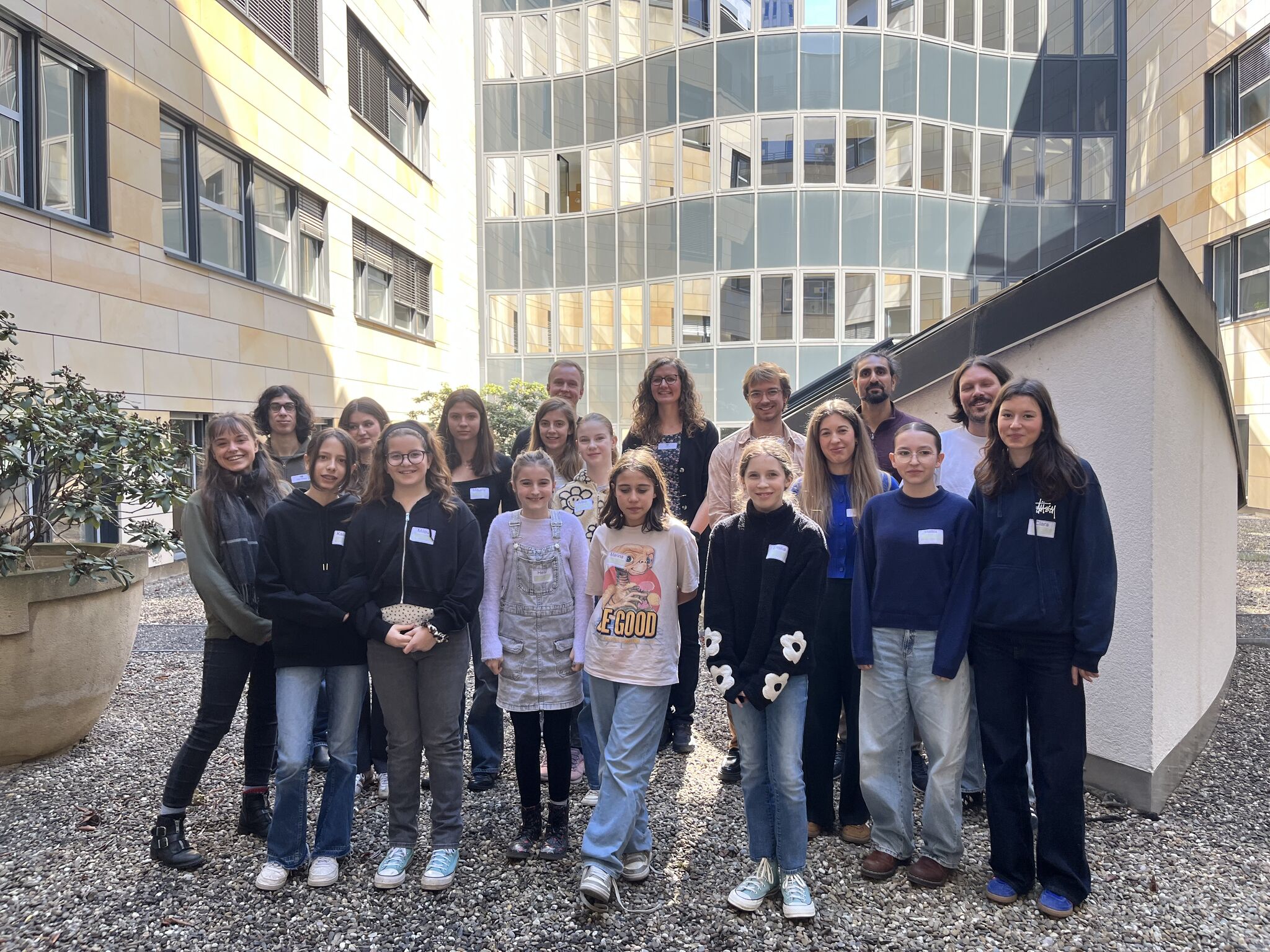We recently had the pleasure of hosting Girl's day at the Brain Simulation Section in Berlin. We offered a series of workshops and talks to the group of students aged 12 to 18 who came to visit our lab and find out more about everyday working life in translational research.
Our colleague Luise da Costa Zemsch wrote a short report on the day's activites:
“Just because you enjoyed physics at school doesn't mean you're good enough to study it.”
That’s what I was told by the careers service when I left school.And now? I’m doing a PhD in computational neuroscience – a field at the intersection of physics, maths, computer science, and neurology. Not exactly how you encourage young women into STEM, right?
That’s why initiatives like Girls' Day matter so much.
Our lab Brain Simulation Section of Petra Ritter opened its doors to an amazing group of girls. I’m proud to have welcomed them along with Jil Meier and Jennifer Them for their first real taste of the world of science.We dove into some of our research with #TheVirtualBrain (fitting the theme “Digital Twins”), introduced our team, and broke the ice with some fun science games.
In the second half, we hosted several hands-on workshops. I co-organized one with André Blickensdörfer and Luca Brandt called “AI detectives: searching for clues in the Alzheimer’s data.” The girls explored the basics of machine learning on the example of Alzheimer’s diagnosis, got hands-on with their first lines of code, and learned something critical:
📌 Never blindly trust an ML algorithm – biased data creates biased results!
These early experiences are important:If we’re serious about fixing the leaky pipeline in academia, we need to act now. Mentor, support, show up. Let’s build a space where curiosity and confidence can grow – no matter who you are or where you’re coming from.


